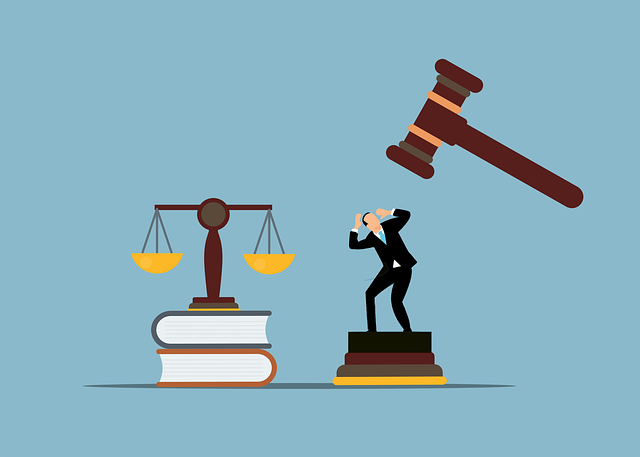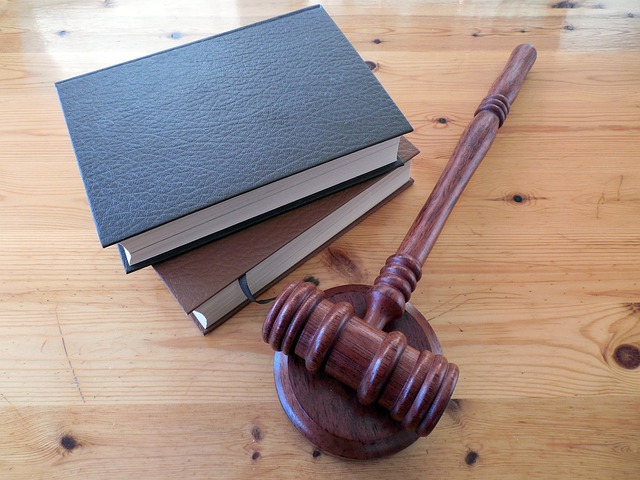Criminal lawyers in Houston play a pivotal role in protecting their clients' rights by excluding inadmissible evidence, such as hearsay and prejudicial information, from court. They carefully evaluate the relevance, materiality, and credibility of evidence, challenging highly inflammatory yet marginally relevant pieces to ensure a fair trial. By scrutinizing witness testimonies, physical clues, and digital data, these experts apply detailed knowledge of legal precedents to determine admissibility. Through strategic challenges based on constitutional arguments, procedural errors, or relevance issues, they protect their clients' interests and ensure a just outcome. In Houston's complex criminal law landscape, a skilled criminal lawyer is indispensable for navigating evidentiary hurdles and safeguarding client rights.
In the pursuit of justice, understanding inadmissible evidence and its impact is paramount. This article delves into the challenges faced by criminal lawyers in Houston when dealing with improper evidence and testimony. We explore common issues, from identifying inadmissible clues to navigating intricate evidentiary rules.
Learn how Houston’s legal experts strategize to suppress harmful testimonies and protect their clients’ rights. Discover successful case studies demonstrating the importance of meticulous legal recourse in ensuring fair trials.
- Understanding Inadmissible Evidence: What It Is and Why It Matters
- Common Challenges to Improperly Admitted Evidence in Criminal Cases
- The Role of a Criminal Lawyer Houston: Navigating Evidentiary Rules
- Strategies for Seeking to Suppress Testimony: Legal Recourses
- Case Studies: Successful Suppression of Inadmissible Evidence
Understanding Inadmissible Evidence: What It Is and Why It Matters

Inadmissible evidence, a term often heard in legal proceedings, refers to any material or testimony that cannot be presented in court due to its lack of reliability or relevance. This could include hearsay statements, where a witness recounts what someone else said outside the courtroom, or highly prejudicial information that might sway the jury without providing substantial proof. For instance, a criminal lawyer in Houston might argue for the suppression of evidence obtained through illegal search and seizure practices, as it violates the defendant’s rights and is therefore inadmissible.
Understanding the concept of inadmissible evidence is crucial for ensuring fair trials. It protects against unfair prejudice, allowing only credible and relevant facts to influence the jury’s verdict. In a city like Houston with a diverse legal landscape, criminal lawyers play a vital role in navigating these complexities, guiding their clients through a labyrinthine system to ensure their rights are protected and only admissible evidence is presented in court.
Common Challenges to Improperly Admitted Evidence in Criminal Cases

In criminal cases, the admission of evidence is a critical aspect that can sway the outcome of a trial. Common challenges to improperly admitted evidence often revolve around issues of relevance, materiality, and credibility. A criminal lawyer in Houston, for instance, would meticulously scrutinize the following: whether the evidence has any probative value—its tendency to make the existence of a fact more or less probable—and whether its prejudicial effect outweighs its probative value. For example, if a piece of evidence is highly inflammatory but only marginally relevant, it may be excluded under rules of evidence designed to ensure fair trials.
Additionally, criminal lawyers may challenge the admissibility of testimony based on hearsay, where a witness testifies about what someone else said outside the court. Such statements are generally inadmissible unless they fall within specific exceptions, such as when the declarant is unavailable and the statement bears indicia of reliability. Moreover, lawyers may object to testimony that lacks foundation or is speculative, ensuring that only reliable and relevant information reaches the jury in a criminal case.
The Role of a Criminal Lawyer Houston: Navigating Evidentiary Rules

In the complex landscape of criminal law, a Criminal Lawyer Houston plays a pivotal role in navigating the intricate evidentiary rules that can make or break a case. Their expertise lies in understanding and applying these rules to ensure that only reliable and admissible evidence reaches the courtroom. With an eye for detail and a deep knowledge of legal precedents, they scrutinize every aspect of potential evidence, including witness testimonies, physical clues, and digital data, to determine its viability as proof.
By doing so, a skilled Criminal Lawyer Houston can help suppress inadmissible testimony or evidence that might otherwise compromise the integrity of the trial process. They employ strategic tactics to challenge improper evidence, utilizing legal arguments based on constitutional rights, procedural errors, or lack of relevance. This meticulous approach not only safeguards the rights of their clients but also ensures a fair and just outcome in the eyes of the law.
Strategies for Seeking to Suppress Testimony: Legal Recourses

When facing improper evidence or inadmissible testimony in a legal case, a skilled criminal lawyer Houston has several strategic options to seek its suppression. The first step involves meticulously examining the circumstances under which the evidence was obtained. If it can be demonstrated that law enforcement or prosecution violated a defendant’s constitutional rights during the collection of evidence, such as through illegal search and seizure or coercive interrogation tactics, a criminal attorney in Houston can file a motion to suppress.
Additionally, attorneys may challenge testimony based on grounds like hearsay (out-of-court statements introduced to prove their truth), lack of reliability, or improper influence. Legal precedents and specific rules of evidence provide frameworks for these arguments. A knowledgeable Houston criminal lawyer will leverage case law, statutory provisions, and procedural guidelines to advocate for the exclusion of such testimony, ensuring a fair trial for their client.
Case Studies: Successful Suppression of Inadmissible Evidence

In the legal landscape, especially in criminal cases, the successful suppression of inadmissible evidence is a crucial strategy employed by seasoned criminal lawyers in Houston. Consider a recent case where a defendant faced charges stemming from a traffic stop. The police officer, during the arrest, seized a device that, upon further inspection, contained encrypted messages. Without proper justification or a warrant, this digital evidence was initially ruled admissible. However, the defense attorney, leveraging their expertise, argued that the search violated the Fourth Amendment’s protection against unreasonable searches and seizures. They presented case law supporting their argument that the police lacked probable cause. The court agreed, suppressing the device and its contents as inadmissible evidence, significantly weakening the prosecution’s case.
This outcome highlights the effectiveness of a well-crafted suppression motion, which can be a game-changer in criminal trials. Criminal lawyers in Houston often employ similar strategies, drawing from an extensive body of legal precedents to challenge evidence that may have been obtained through illegal means or without proper procedural adherence. Such efforts not only protect the rights of the accused but also ensure that justice is served fairly and justly within the bounds of the law.
When facing criminal charges, understanding the importance of inadmissible evidence and properly challenging it is paramount. A skilled criminal lawyer in Houston can navigate complex evidentiary rules to ensure a fair trial. By employing strategies outlined in this article, including recognizing common challenges, utilizing legal resources, and learning from case studies, individuals can protect their rights and fight against the admission of improper evidence. This approach not only strengthens their defense but also underscores the significance of adhering to strict procedural guidelines to maintain the integrity of the justice system.
